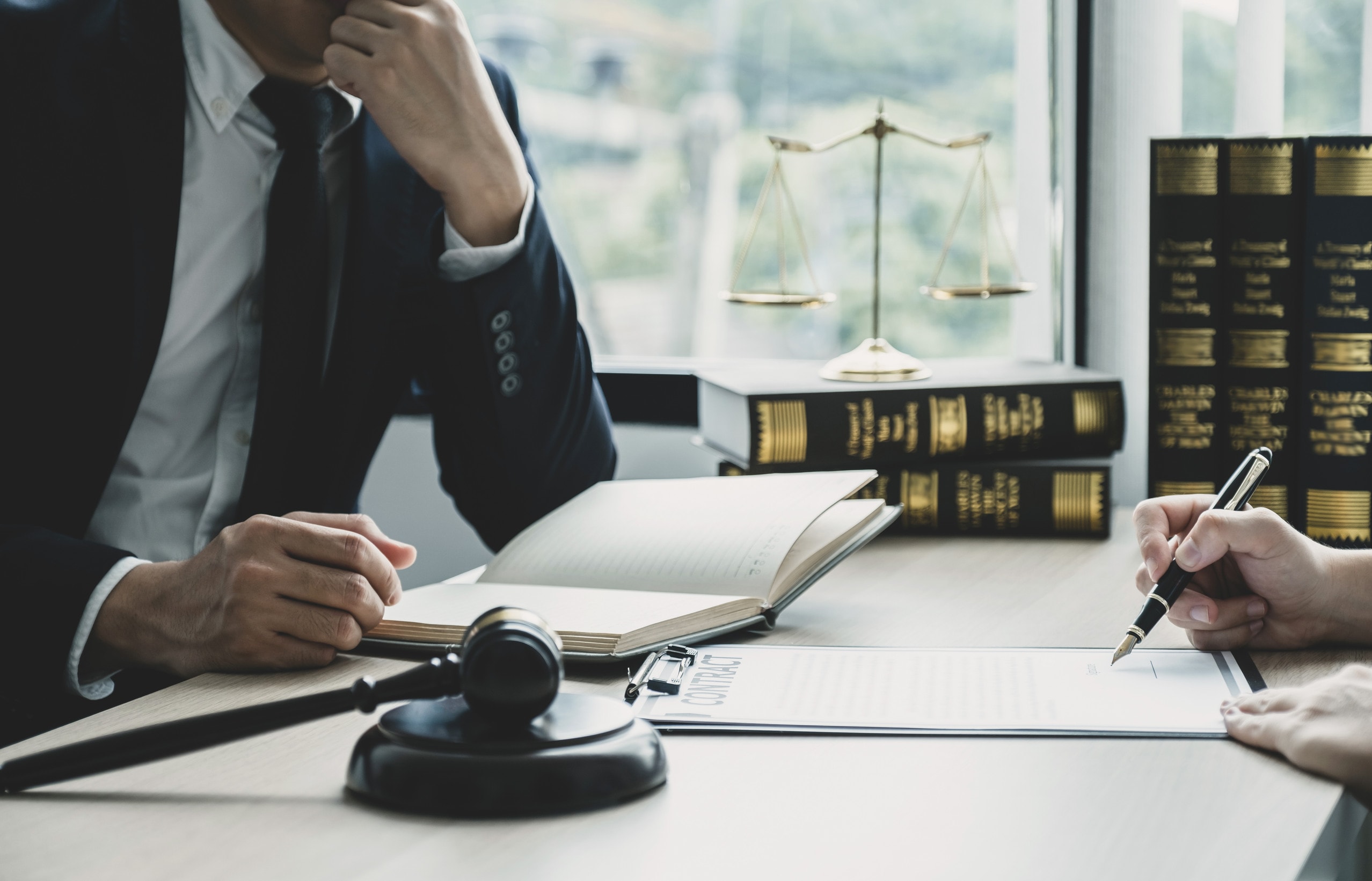NHS Resolution reported that between 2023 and 2024, there were a total of 13,382 clinical negligence claims resolved, increasing from 13,552 in 2022 and 2023. Most of these claims can be settled outside of court; however, if you have suffered harm from receiving substandard care, you could have the grounds to make a claim against the NHS.
Our guide today will explore how you may be eligible to make a claim against the NHS and explain how a solicitor could help you do so. We will then discuss where your compensation may be paid from in successful claims, as well as expanding on the time limit you have to start a claim.
Read on to learn more about how to claim against the NHS, or using the details below, you can contact our advisors to discuss your potential case.

Contact Us
You can reach our friendly advisors by:
- Calling us on 0113 460 1216
- Fill out our online claim form
Jump To A Section
- How To Claim Against The NHS For Medical Negligence
- The Benefits Of Claiming Against The NHS With A Solicitor
- What Is The Role Of NHS Resolution?
- The Average NHS Compensation Amounts
- How Long You Have To Make An NHS Medical Negligence Claim
- The Evidence You Will Need To Support Your Claim Against The NHS
- No Win No Fee NHS Medical Negligence Claims
- Frequently Asked Questions
- More Information
How To Claim Against The NHS For Medical Negligence
If you are wondering how to claim against the NHS, your case must satisfy the requirements for medical negligence. For you to meet the eligibility criteria, we must be able to prove the following:
- A medical professional owed you a duty of care
- The medical professional breached this duty of care
- You suffered harm which was avoidable and unnecessary as a result of the breach
In essence, the duty of care that is owed to you is that all medical professionals who treat you must do so by providing a level of care that meets the standard expected of them in their role.
What Is The Claims Process?
As well as ensuring you are eligible to make a claim, the process itself includes the following steps:
- Receiving medical treatment for the harm you have suffered
- Instructing a solicitor to help you start your medical negligence claim
- Evidence gathering to support and strengthen the basis of your case
- Filing a formal complaint against the NHS (we discuss this in depth further on in the guide, although it is not essential, it can strengthen your claim validity)
- Pre-Action Protocol, where guidance is outlined to both parties before litigation
- The negotiation stage is where a settlement offer may be discussed
As we have explored, most clinical negligence claims will reach the negotiation stage where a settlement amount can be agreed on or negotiated. Our panel of solicitors are experts in medical negligence claims against the NHS, and it is not favourable for either party to have to go to court to settle the case.
If you would like a free claim validity check, you can call our friendly advisors, who will be happy to explore this with you.
The Benefits Of Claiming Against The NHS With A Solicitor
There is a range of different benefits from choosing to instruct legal representation. The solicitors on our panel are experts who can assist you in understanding the claims process altogether and offer support and legal advice.
We know that having experienced harm as a result of NHS medical negligence can feel isolating and challenging. That’s why our panel of solicitors are committed to supporting you through each step of your case, whether this be developing a recovery plan that suits your needs or advocating on your behalf to achieve a suitable settlement amount.
By choosing to work with a solicitor from our panel, you can expect:
- Regular, clear updates about your claim
- Help with gathering supporting documents to act as your evidence
- Arrangement of an independent medical assessment if necessary
- Negotiation of your settlement amount to ensure it accurately reflects the harm you have experienced
As well as this, our panel of solicitors have years of combined knowledge and experience, ensuring they have the expertise needed to support clients just like you throughout the claims process.

What Is The Role Of NHS Resolution?
NHS Resolution is the arms-length branch of the Department of Health and Social Care. They are responsible for managing and litigating claims made against the NHS.
They have four key service areas, which are:
- Claims management – handling both clinical and non-clinical claims
- Practitioner Performance Advice – providing expert advice and exploring the performance of doctors, dentists and pharmacists
- Primary Care Appeals – a non-biased resolution service for handling primary care contracting disputes
- Safety and Learning – discussing ways to improve and avoid claims from arising
Settlements are paid out by NHS Resolution in successful NHS medical negligence claims.
If you have any questions about how to claim against the NHS and the role that NHS Resolution has, contact us today. Our advisors will be happy to discuss this with you.
The Average NHS Compensation Amounts
To get the average NHS compensation figures, you would need to find the total number of claimants and divide this number by the total amount paid out by NHS Resolution in any given time span. A more useful way of working out what you could be owed would be to learn the different factors that apply when valuing claims (these factors also apply when making a claim against a private healthcare provider).
In successful claims, your compensation can be made up of two heads of loss:
- General damages, which are compensation for your pain, suffering and any loss of amenity. If, for example, the harm you have suffered has affected your quality of life, this will be assessed in your general damages.
- Special damages, which are compensation for the financial implications or losses caused by your harm. This can include things such as loss of earnings, travel costs and even childcare costs.
Below, we have attached a table showing brackets of compensation taken from the Judicial College Guidelines. This is a framework offering types of harm or injury, and compensation brackets that could apply to each. This document can be used by solicitors when calculating compensation. Please note that the top figure hasn’t been taken from the JCG. Please also be aware that these figures are suggestive, and not a guarantee of compensation.
| Injury | Notes | Compensation Guideline |
|---|---|---|
| Multiple Serious Forms of Harm and Special Damages | Various different forms of harm as well as special damages such as childcare costs or loss of earnings | Up to £1,000,000+ |
| Injuries Involving Paralysis Tetraplegia (also known as Quadriplegia) | The award in such cases is affected by the injured party's awareness, pain and life expectancy and whether they've retained powers of speech, sight and hearing. | £396,140 - £493,000 |
| Injuries Involving Paralysis Paraplegia | The following factors might impact the amount awarded: impact on sexual function, age and life expectancy, and the presence and extent of pain . | £267,340 - £346,890 |
| Brain Injury Very Severe | Factors that will affect the amount of compensation can be the extent of any behavioural problems, the level of physical limitations and life expectancy | £344,150 - £493,000 |
| Kidney Injury a) | Serious and permanent damage or loss of both kidneys. | £206,730 - £256,780 |
| Bladder Double Incontinence | Loss of bladder and bowel function paired with other medical complications. | Up to £224,790 |
| Reproductive System Female a) | Sexual dysfunction, infertility, severe depression and anxiety . | £140,210 - £207,260 |
| Reproductive System Male Total Loss of Reproductive Organs | The following factors will be assessed when an amount is being calculated: - Medical complications - Pain and sexual dysfunction - Whether the individual has had children. | In excess of £187,790 |
| Back Injury Severe (i) | Damage to the nerve endings and spinal cord, the most severe back injuries will fall into this bracket. | £111,150 - £196,450 |
| Chest Injuries (a) | Removal of one lung or serious heart damage, with prolonged pain and suffering. | £122,850 - £183,190 |
How Long You Have To Make An NHS Medical Negligence Claim
Generally, you have 3 years to start an NHS medical negligence claim. This time limit runs from either:
- The date that the negligence occurred
- The date that you realised that negligence occurred (or would have been expected to realise).
This time limit is established by the Limitation Act 1980. The act also lays out two exceptions where the time limit slightly differs:
- For claimants who are under 18 at the time of the harm, their time limit will run from the date of their 18th birthday until the date of their 21st birthday. This is because a minor is unable to claim for themselves.
- Claimants who are mentally incapacitated can’t claim on their own behalf. Their time limit will resume if the claimant recovers this capacity. The time limit would run from the date of recovery.
In both of these circumstances, someone can act as a litigation friend. This is where you can claim on behalf of either a vulnerable person or a minor. You can be appointed as a litigation friend or alternatively, a solicitor from our panel could help you to apply to act in this role.
If you are unsure whether your claim would still fall within the time limit, or are wondering how to claim against the NHS on somebody else’s behalf, you can contact us today, and our advisors will be happy to discuss this with you.
The Evidence You Will Need To Support Your Claim Against The NHS
An important step in any medical negligence claim is gathering evidence. This could be documentation that helps to demonstrate how the healthcare professionals acted negligently, and ultimately how you suffered the harm that you experienced. Evidence can help to support your claim and increase the likelihood of a successful case.
Evidence in medical negligence claims could include:
- X-rays, scans or test results
- Any correspondence between you and the healthcare professionals who treated you
- Copies of any prescriptions you are currently taking
- Your medical or GP records to highlight your medical condition and the extent of the harm suffered
- A diary or description of the pain and suffering caused by the harm
As part of the services offered by Medical Negligence Claims Care, a solicitor from our panel could assist you in compiling this evidence, so please don’t worry if you haven’t got these documents together.

Will I Need To Take The NHS To Court?
It is possible to take the NHS to court, but the majority of cases can and will be settled out of court. NHS Resolution reported that in 2024, 81% of clinical claims were resolved without the need for litigation.
Cases may require court action if either the NHS denies liability or a settlement amount can’t be reached. Our panel of solicitors encourage both negotiation and mediation to avoid the need to attend court.
Our panel works tirelessly to achieve a settlement amount that accurately represents the harm you suffered from experiencing medical negligence. If you’re wondering how to claim against the NHS, contact us today to explore more and see how we could help you get started.
No Win No Fee NHS Medical Negligence Claims
Our panel of expert solicitors work on a No Win No Fee basis, through the use of a contract called a Conditional Fee Agreement. What this means is that you wouldn’t have to pay any upfront fees for your solicitor’s work or any of these fees to progress your claim.
If your claim was successful, then a small percentage of your compensation will be deducted, but it is limited in line with the Conditional Fee Agreements Order 2013 to ensure you receive the bulk of your compensation. However, if your claim were unsuccessful, then you wouldn’t be required to pay for our panel’s legal services.

Contact Our Team
To discuss how to claim against the NHS or another healthcare provider, or if you have any questions at all, you can contact our friendly advisors by:
- Calling us on 0113 460 1216
- Fill out our online claim form
Below, we explore the most commonly asked questions about NHS medical negligence claims:
Do I Need To Have Logged A Complaint To Make An NHS Claim?
It isn’t a requirement to have logged a formal complaint with the NHS to make a compensation claim for medical negligence. However, a complaint can help act as supporting evidence, but it is not a necessity for starting your NHS medical negligence claim.
You can begin a compensation claim with support from the Medical Negligence Claims Care panel if you’ve suffered harm due to medical care that was negligent. Call us today for a free case validity check.
What If The NHS Referred Me To A Private Hospital?
You are still able to make a claim against the NHS even if you have been referred to a private hospital. The difference is whether you would be claiming against the private healthcare professionals or whether it would be against the NHS.
If the private institution is covered by NHS Indemnity Insurance, then you could still make a claim against the NHS.
Whereas, if they aren’t covered by NHS Indemnity insurance, then a medical negligence claim can be made against the private company, rather than against NHS Resolution.
Will A Claim Negatively Impact The NHS Budget?
No, as all claims are managed by NHS Resolution, which has its own budget funded by other NHS trusts, rather than the main NHS budget. What this means is that payouts for successful claims against the NHS come from the NHS Resolution’s funds, not from allocated funds for healthcare services.
Will I Still Be Able To Access NHS Treatment If I Claim?
You will still be able to access NHS treatment even if you start a claim. You cannot legally be denied treatment, as making a claim for medical negligence does not disqualify you for treatment.
Will The NHS Professional Who Treated Me Lose Their Job?
NHS claims are made against the specific NHS Trust or organisation that is responsible for the negligent treatment, rather than against the individual healthcare professional.
The NHS professional who treated you might be subject to investigations, disciplinary actions or even sanctions from the General Medical Council.
Will My Claim Stop NHS Negligence Happening To Someone Else?
Making an NHS claim might encourage and promote positive change within the NHS, but it doesn’t prevent negligent treatment. Claims do, however, bring attention to areas that might need improvement, and they can highlight weak points to medical professionals.
More Information
Why not read our other guides on:
- How to make a cerebral palsy claim
- Misdiagnosed cancer claims
- How to make a hip replacement negligence claim
Useful External Resources
- How to make a complaint against the NHS
- Learning from medication errors from NHS Resolution
- How to apply for statutory leave and time off
Thank you for reading our guide on how to claim against the NHS.


























